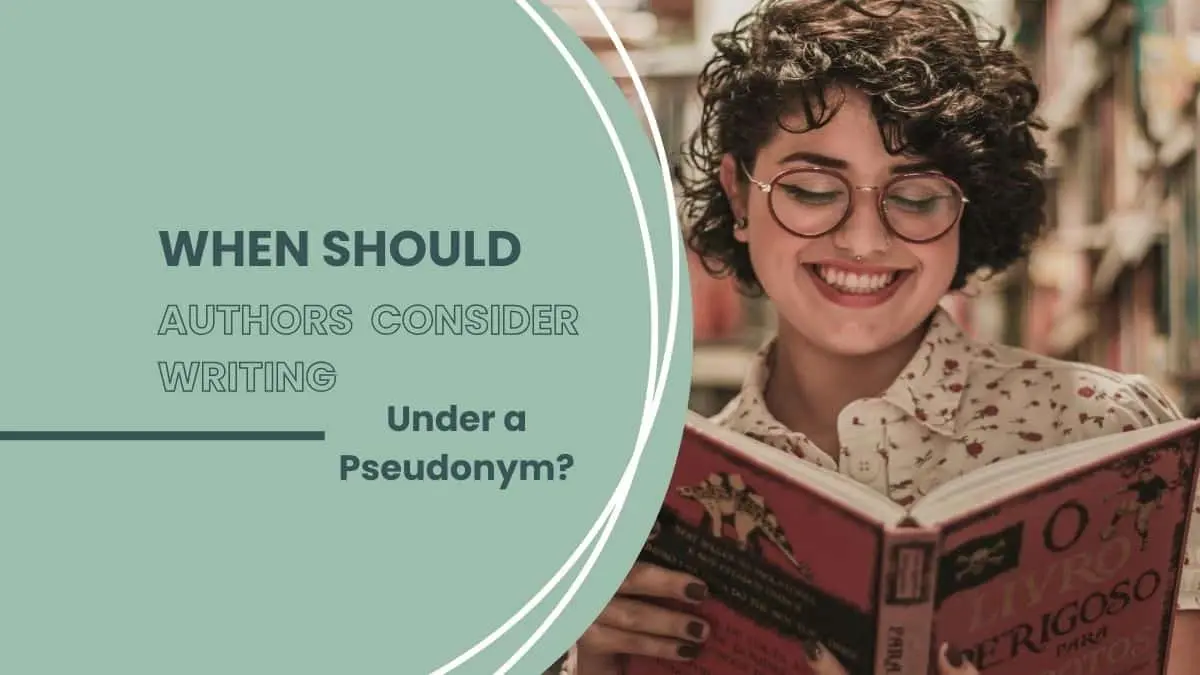Writing under a pseudonym, also known as a pen name, is a centuries-old tradition. Many famous authors, such as Mark Twain (Samuel Clemens) and George Eliot (Mary Ann Evans), have used pen names to achieve various goals in their writing careers. But when should modern authors consider taking this path? Below, we delve into the scenarios where adopting a pseudonym might be the right choice, supported by examples and practical advice.
1. Exploring a New Genre
Authors often choose pseudonyms when venturing into a different genre to avoid confusing or alienating their existing audience. For instance, if a romance author decides to write a dark Thriller, using a pen name can help differentiate these works.
Example: Nora Roberts, the queen of romance Novels, writes futuristic crime thrillers under the pseudonym J.D. Robb. This allows her to maintain her distinct audience for each genre while experimenting creatively.
If you’re considering this route, think about your brand. Will your readers embrace a dramatic shift in tone and content? If not, a pseudonym can help you build a separate identity in the new genre.
2. Maintaining Privacy
In an era of social media and online visibility, some authors use pseudonyms to protect their personal lives. This is particularly relevant for writers addressing controversial topics or those who value anonymity.
Example: The author of The Diary of a Wimpy Kid series, Jeff Kinney, initially preferred privacy. Similarly, Elena Ferrante, the reclusive author of My Brilliant Friend, remains anonymous, using a pseudonym to let her work speak for itself.
If you value your privacy or write content that might draw unwanted attention, a pen name could shield you from scrutiny.

3. Overcoming Gender Bias
Unfortunately, gender bias still exists in some literary markets. Female authors in male-dominated genres, such as science fiction or thrillers, might use a pseudonym to avoid potential prejudice. Similarly, male authors in romance or young adult genres sometimes adopt gender-neutral names.
Example: J.K. Rowling used her initials to appeal to a broader audience for the Harry Potter series, as her publisher believed a male or neutral-sounding name would attract more young readers. She later used the pseudonym Robert Galbraith for her crime novels.
If you suspect your gender might impact the reception of your work, a pseudonym could level the playing field.
4. Avoiding Overexposure
Prolific authors might adopt pseudonyms to prevent overexposure or to create the illusion of scarcity. Writing under multiple names can also keep their books from competing directly against each other.
Example: Stephen King published several novels under the pseudonym Richard Bachman to test whether his success was due to talent or reputation. When readers eventually discovered the truth, it became a fascinating part of his legacy.
If you publish frequently or in various genres, a pseudonym can give each project breathing room and maintain your brand’s freshness.
5. Rebranding After Failure
Sometimes, a fresh start is necessary after a series of unsuccessful books. A new pen name can help you shake off past failures and begin anew with a clean slate.
Example: Romance author Jessica Bird reinvented herself as J.R. Ward and found immense success with her Black Dagger Brotherhood paranormal romance series.
If you feel your previous work has pigeonholed you or hindered your growth, a pseudonym can be a powerful tool to redefine your career.

6. Writing Collaboratively
Collaborations between multiple authors often result in the creation of a single pseudonym to represent the team. This simplifies marketing and branding efforts.
Example: The pseudonym Erin Hunter represents the collective authors behind the popular Warriors series about clans of wild cats. This unified name makes the brand cohesive and recognizable.
If you’re working in a group, consider whether a shared pseudonym might streamline the process and enhance the marketability of your work.
7. Avoiding Professional Conflicts
If your day job conflicts with your writing career, a pseudonym can be a lifesaver. Teachers, lawyers, and public servants often use pen names to avoid professional repercussions or protect their credibility.
Example: Many authors in academia or sensitive professions choose pseudonyms for this reason. For instance, if you’re a high school teacher writing steamy romance novels, a pen name might help you avoid awkward conversations with colleagues or students.
If your writing could clash with your professional role, adopting a pseudonym is a practical solution.
8. Creating a Distinct Brand
A pseudonym can help craft a memorable, marketable identity. This is particularly useful for authors whose real names are difficult to spell, pronounce, or remember.
Example: Bestselling thriller author Lee Child was born James Dover Grant. He chose his pseudonym for its simplicity and strong market appeal.
If your real name doesn’t resonate with your target audience, consider a pseudonym that aligns with your genre and brand.

9. Protecting Against Backlash
Writers tackling controversial topics, such as politics, religion, or social issues, often use pseudonyms to shield themselves from backlash. This can be especially important if you live in a region with strict censorship laws or cultural sensitivities.
Example: Some writers critical of oppressive regimes or societal norms publish under pseudonyms to avoid legal consequences or personal harm.
If your writing could provoke strong reactions, a pen name can provide an extra layer of safety.
10. Writing for Multiple Audiences
If you write for vastly different audiences—say, children’s books and adult horror—a pseudonym can prevent confusion and maintain age-appropriate branding.
Example: Daniel Handler writes children’s books as Lemony Snicket while publishing adult fiction under his real name. This allows him to connect effectively with each audience.
If your work spans contrasting genres or audiences, a pseudonym can help maintain clarity and focus.
Also Read: When Should Authors Consider Audiobooks for Their Novels?



